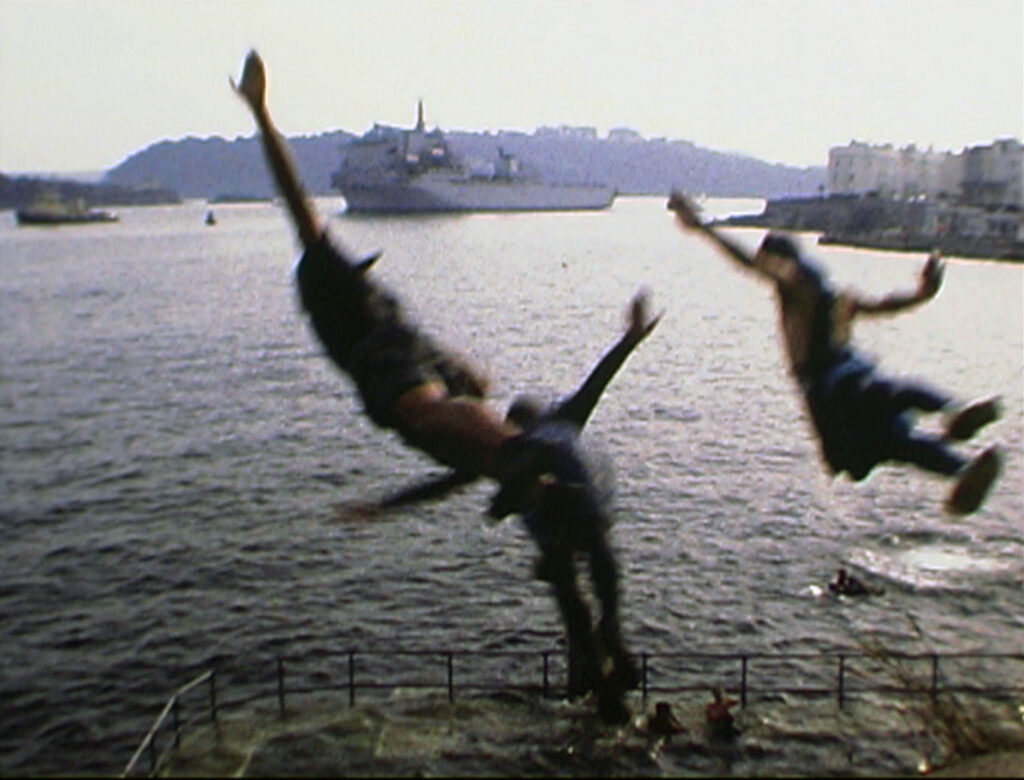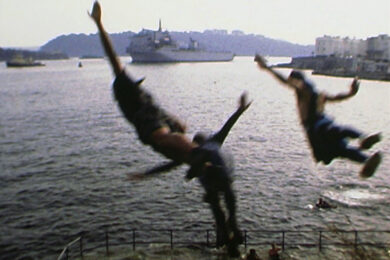Sea Front by Stuart Moore
It has never been easier than it is now to produce a low-budget feature film, and the media rings with success stories of little films that made good, and with opportunities for filmmakers to find audiences and profits through new distribution models via DVD and on-line. In this climate, you would be forgiven for wondering why anybody bothers with short films. Shorts were traditionally seen as a calling card and a training ground, but with advances in low-cost digital production and editing equipment, feature films can be seen to do the same job. After all, many a successful, award-winning short filmmaker has faded to obscurity following a misjudged first feature. If one can hone skills on working on features from the start, why not just bypass the classic first stage?
Short film has been with us since the birth of cinema; even before long form films. They would travel with carnivals and music hall shows interspersed between variety, comedy, music and cabaret. Cinema history texts often cite the apocryphal story of audiences running screaming from the auditorium as the Lumiere Brothers’ steam train hurtles towards them from the screen. As the artform developed in the first half of the 20th century more complex plotlines demanded to be developed over a longer viewing time, and the creation of giant picture palaces for a captive audience to consume the latest lengthy epic made a lot of executives very rich. They wouldn’t have got rich on short films! But even during this period, the short was an essential part of cinema going, whether newsreel, slapstick skits from Laurel & Hardy et al, or (particularly in the UK), the quota quickie – short dramas that played before the main event. The short-before-the-feature, be it documentary, comedy or reportage, had a place right up the video explosion of the early 80’s. In the UK, the General Post Office (GPO) regularly made groundbreaking and classic short docs including NIGHT MAIL, which is still spoken about as one of the greatest films of all time. This kind of filmmaking art lent itself more to the short format, and many renowned artists made a name for themselves via short films, including Man Ray, Maya Deren, Stan Brakhage and Kenneth Anger. More recently filmmakers as diverse as David Lynch, Martin Scorsese and Mike Leigh all have their short films easily available to buy on DVD. Both Lynch and Leigh in particular have returned to making shorts even after their feature film successes. In the early 80’s the medium of short film found another outlet. Music video wasn’t a new format at that time; who can forget Queen’s BOHEMIAN RHAPSODY behemoth short film, while in France the refusal of superstar Serge Gainsbourg to perform live meant he regularly made shorts to accompany releases. Even Kenneth Anger loved to use a rock ‘n’ roll tune or two. With the birth of MTV though, up and coming directors and creatives could let their imagination run wild, scrunched into 3 minutes of surrealism and mayhem. Over these last 30 years, ads and promos have been training grounds for filmmakers from Ridley Scott to David Fincher and McG. Traditionally this side of the industry offers decent money for short format work, although less true now, purely as it is now so cheap to make something, anyone can do it . . .
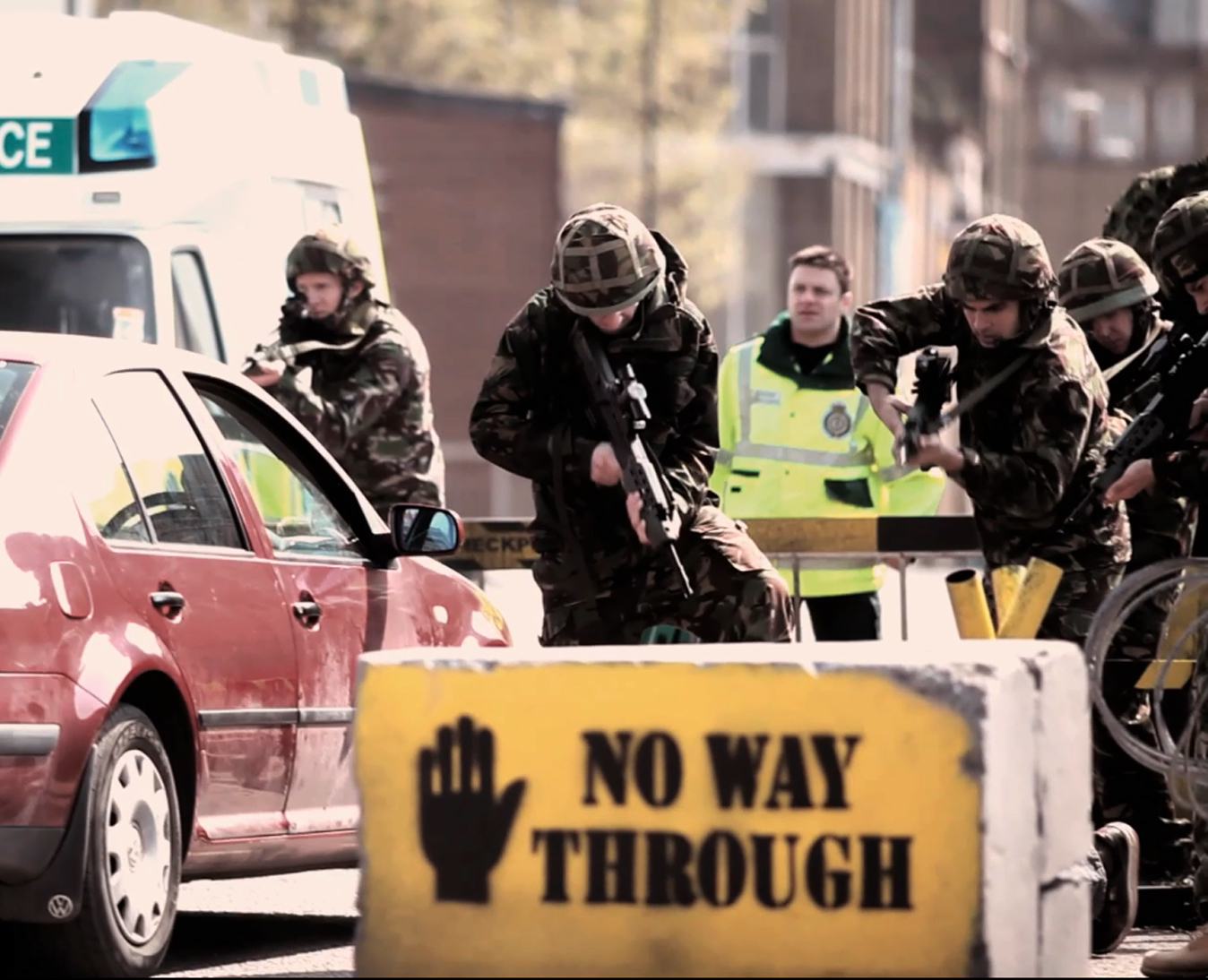
No Way Through by Alexandra Moro & Sheila Menon
Because it is so cheap and easy, quite literally anyone can go out there a make a complete film with a couple of button pushes. The phenomenal success of YouTube and other on-line viewing platforms supports this, offering easy access to vast audiences. What we are also seeing are films that were once perceived as throwaway ideas now coming to the fore as relevant and auteur work to be screened in front of a paying audience on a big screen. Which brings me to film festivals. Several years ago we got the news: "Cinema Is Dead". From now on we would all be downloading, home-viewing, and viewing on the move during our busy lives. The old-fashion film festival model of people coming together to sit in a darkened room was deemed outdated.
This, it has transpired, could not be further from the truth. When we announced entries were open for the seventh London Short Film Festival, the floodgates opened. We received a thousand British short films of all shapes, sizes and genres; more than ever before. Despite the accessibility of those previously mentioned on-line platforms, where films may get thousands of eyeballs and hundreds of comments, the vast majority of filmmakers still want the to show their work on the big screen, to a small group of human beings; human beings they can meet and talk to in the bar afterwards, get face-to-face feedback and form lasting bonds. This is the traditional model we’ve championed for seven years now, and the festival’s sell out screenings and events prove its worth.
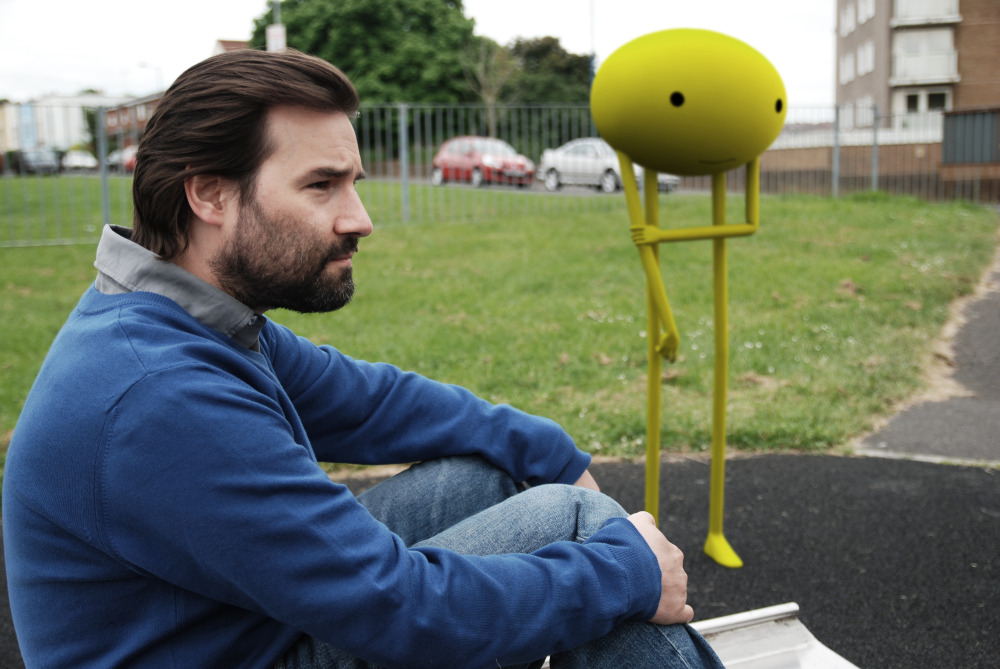
Little Face by Matthew Walker and Ben Lole
In many ways, the creative identity of a film festival can also help to bring audiences to the films being screened. Certain festivals have built up followings, in the way live music or club nights can, with the audience knowing what’s in store beforehand, spreading recommendation by word of mouth. Also, even though a film festival specialises in short film, it can build other events and screenings into its framework. Festivals such as onedotzero and Optronica are known for showcasing new media and animation, having both grown from the late nineties dance culture creative explosion where VJs became artists and filmmakers, and flyer graphics become moving projections. Birds Eye View exclusively champion women filmmakers re-inventing the women’s film festival for the Sex & the City generation. Flatpack in Birmingham and its sister organisation 7 Inch Cinema use a city with virtually no cinemas to stage alternative screenings, in a similar way to Branchage in Jersey, where screenings and events can be held in any number of buildings from castles to war tunnels across the island. All these Festivals are what are best described as auteur run, where a small team of dedicated individuals work closely together with available resources to deliver something that an audience will remember. With many of these festivals, audiences often will not be aware of the filmmakers and the work on show in advance, so they have to rely on the festival’s brand and track record. It’s not like selling a film on the strength of its star or directors, which is how the larger more faceless festivals work. The nearest comparison is music festivals, many of which sell out of tickets before a programme has even been announced.
So, given the proliferation of film festivals and screening clubs, alongside the vast amount of work out there to screen, it seems short filmmaking and its fans are alive, well, and more relevant than ever as we enter the second decade of the 21st century. It may be cheap and easy to make features, but this will mean it’s even cheaper and easier to make shorts, so bring ‘em on in their thousands… long may the short film reign!
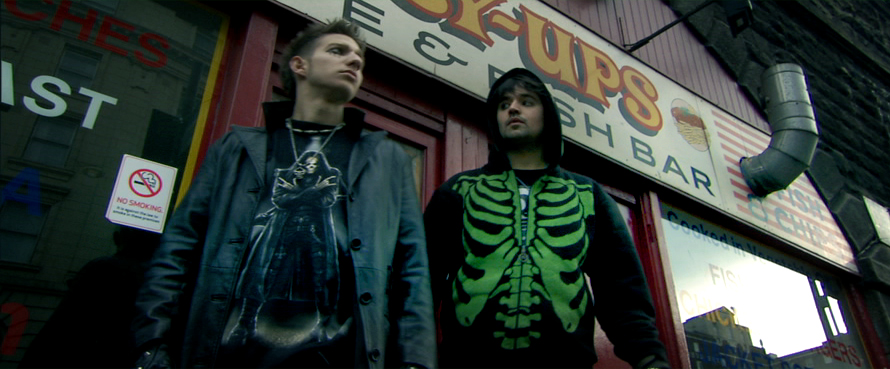
Super Goths by Oliver Smyth
Details of the festival
More details on the London Short Film Festival Here.
And here are some events that have whetted our appetite:
London Short Film Festival Launch. Friday January 8, 6pm at the ICA Bar.
Join us in the bar to see in the seventh edition of the London Short Film Festival with like minded film fanatics and The Quietus DJs.
The Post Rock Years: INTROSPECTIVE + live bands. Saturday January 9, 8pm at the Roxy Bar & Screen.
A screening of the film INTROSPECTIVE, an exploration of the post-rock scene featuring performances from Mogwai and Tortoise and interviews with Thurston Moore of Sonic Youth and Jason Spaceman of Spiritualized.
Katalin Varga – The Musicians. Thursday January 14, 7pm at the Roxy Bar & Screen.
A selection of musical performances from the contributors to the soundtrack of Peter Strickland’s directorial debut Katalin Varga.
New Shorts 11: Music & Video. Saturday January 16, 4.30pm at the Roxy Bar & Screen.
A selection of creative music videos and films with a music soundtrack. The Quietus will present an award for their favourite film, with the winning director to receive an interview on the site.
Extraordinary Films – Saturday January 16, 6.30pm at the Roxy Bar & Screen.
Featuring the fantastic music documentaries Stop Making Sense by Jonathan Demme, an innovative exploration of Talking Heads in concert, and The Last Waltz by Martin Scorsese, a document of The Band’s last concert after 16 years of touring. There will also be a live set from Mat Motte, former frontman of indie-punks Mower, and a spot of Talking Heads karaoke.
Brancharge and The Quietus present Isolation: A Live Soundtrack Even. Sunday January 17, 8pm, at the Roundhouse.
An atmospheric and impressionistic documentary focusing on the life of Stuart Griffiths, an ex-Paratrooper who has since become a renowned social photographer.
Luke Seomore, who wrote original music for the film, will be performing this soundtrack live with musicians Michael Garrad and David Stephens, which was first premiered at the 2009 Branchage Jersey International Film Festival.
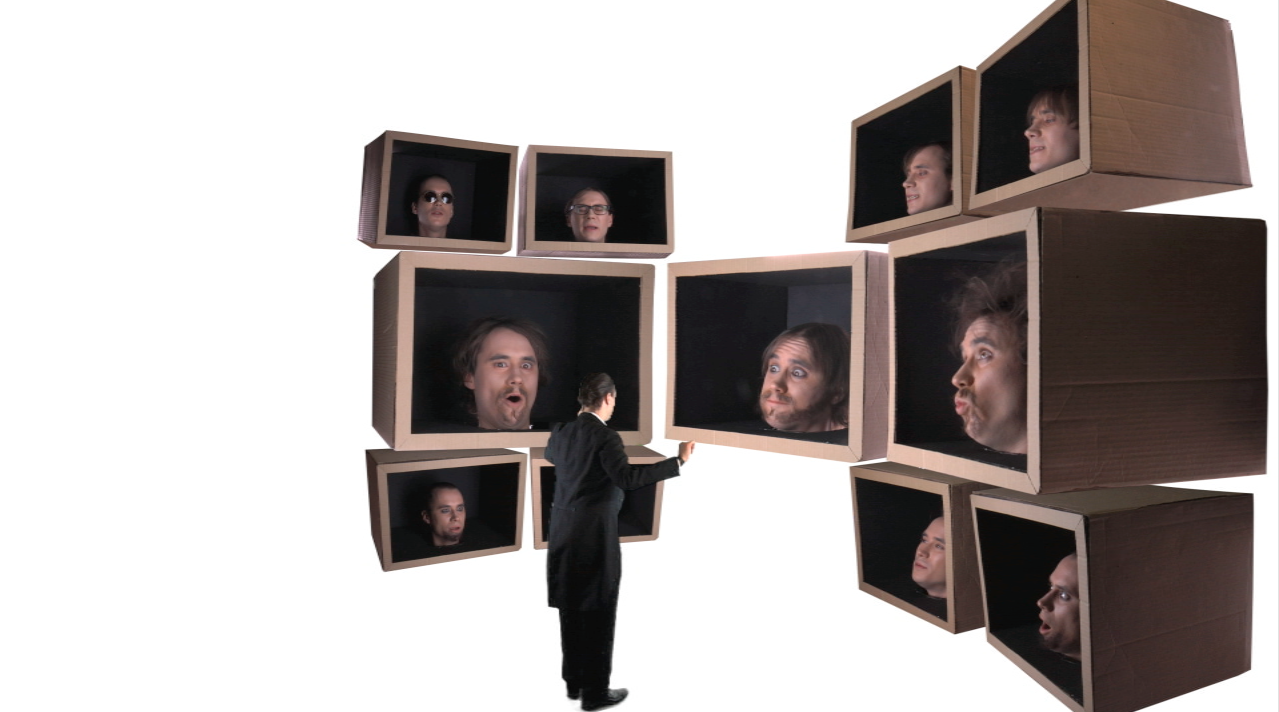
Philharmonic by Will Dorien-Smith

